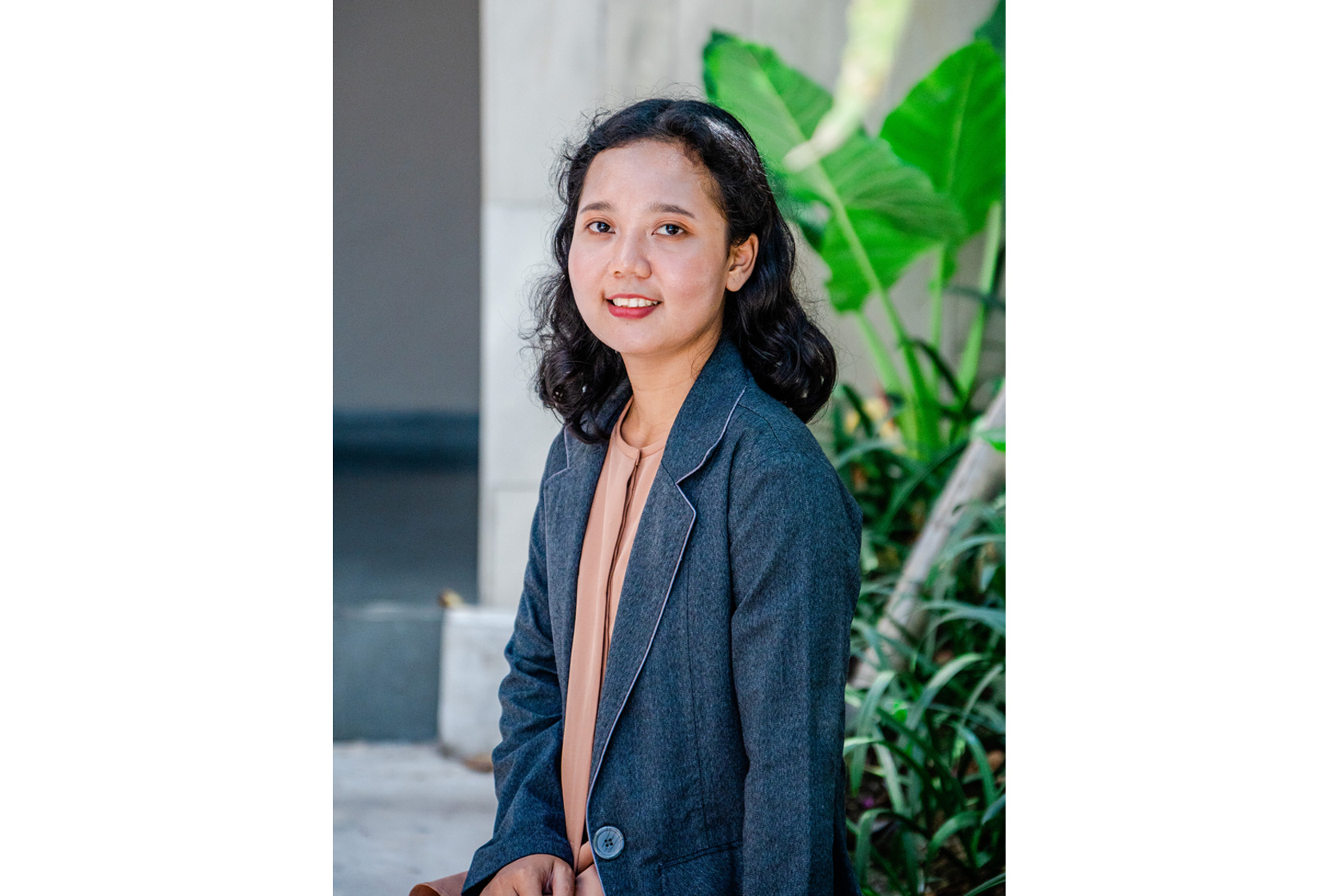As a teenager growing up in Banjarmasin, South Kalimantan, Rizki Anggarini Santika Febriani was studying hard to achieve top grades, when a major life event caused her to ask big questions about gender inequality.
Rizki, known as Kiky, was encouraged to pursue higher education by her parents, both high school graduates who worked as labourers in a plywood factory. In 2015, when she was in high school, her parents got divorced. It marked a crucial moment in her life that led her to explore more about gender inequality, a subject she’s become passionate about.
“Divorce is a common thing in Banjarmasin, and it is also common for a man to marry multiple women,” said Kiky. “At the time my mother poured her heart out to me. She refused to stay in a polygamous marriage but she had doubts about the future as she was a housewife who had no means to support herself. I wondered if it really had to be this way, why was polygamy deemed common, and why did the burdens fall on the women?”
Her interest in gender issues flourished when she joined the journalism club at Lambung Mangkurat University, where she studied communication science. Around the same time, a sexual violence case in Central Java covered by the press in 2019 led to other cases being reported, revealing the prevalence of sexual violence in Indonesian universities.
“Student journalists in some universities collaborated to investigate the sexual violence cases on their own campuses. When we unfortunately couldn’t publish the findings, we decided to create a collective for young women called Narasi Perempuan (Women’s Narratives),” Kiky said. With the support of the women’s organisation Perempuan Mahardhika, they highlighted feminist perspectives through discussions and activities to prevent sexual violence on campus.
Supporting Transgender Communities
After she graduated, Kiky joined the South Kalimantan branch of Indonesian Planned Parenthood Association (PKBI) as a project officer for their inclusion programs, funded by the Australian Department of Foreign Affairs and Trade. She was tasked with the empowerment of transgender people in Kalimantan, especially Banjarmasin and the Banjar regency.
“The experience was something totally new for me as I was not familiar with the issues they faced. The minute I stepped in, I learned so much from the transgender people,” Kiky recalled. “I found out about their problems and the role of the government in the matters.”
At the time, Kiky also had to deal with her own family’s rejection of her decision to work with transgender people. “It took time and reassurance,” she said.
In her work, Kiky met various stakeholders to campaign for the rights of transgender people. She spoke about how many transgender seniors didn’t have national identity cards, which meant they lacked access to basic rights, including healthcare.
“Some transgender people lacked identity cards because they were shunned by their families from a young age and had moved to other towns with no documents at all,” she explained. Through PKBI, Kiky helped some people obtain identity cards.
In collaboration with several universities in South Kalimantan, such as the economics school STIE Indonesia Banjarmasin, PKBI held entrepreneurship workshops that covered financial management, social media and business trends. With the law faculty of Islamic University of Muhammad Arsyah Al Banjari Kalimantan, they held workshops that provided transgender people with information on their rights, should they ever face legal issues.
“Most transgender people work in beauty salons or provide bridal make-up services, but they could not quite keep up with the trends, which made them less appealing to customers,” Kiky said.
PKBI also held meetings with families of transgender people. One story that stayed with Kiky was about a transwoman in her 50s who had never had an identity card. “We helped her to obtain one, then we accompanied her to a hospital to receive check-ups. It was there that we found out she was HIV positive, something that she never knew about,” she said. “We began treatment right away, but it was too late and she died not long after. It was heartbreaking to think that it could’ve been prevented if she’d had an identity card all along.”
Research-Based Advocacy
Knowing there are still transwomen who are out of reach of services, like those who have just started their transition and those who are not linked with transgender communities, Kiky was determined to pursue higher education. She received an Australia Awards Scholarship to study gender and development in a Masters of Development Studies at the University of Melbourne.
“Research on transwomen so far has largely been done on a national scale with most samples taken in Java,” said Kiky, who took her first class on 26 February 22024. “I aspire to do research-based advocacy for gender issues, especially on sexual violence against women or transgender people in Banjarmasin.
As someone who’s deeply involved with gender issues, Kiky views International Women’s Day, celebrated annually on March 8, as a moment for reflection, and marking progress.
“I’m so happy to know that the day is celebrated across various provinces in Indonesia. I remember that during my freshman year in university, it was hardly acknowledged,” she said. “It has changed now, and I assume more people have understood and realised that gender-based inequality must stop. There’s still a long way to go on the road to gender equality but as long as there’s progress, it’s worth celebrating.”
While there is still much work to do, Kiky takes encouragement from her allies.
“Gender issues receive so much support, and I’ve gained so many friends who fight alongside me for equality,” she said. “The Australian government has provided immense support for the issue, with women and gender issues being a priority field for the scholarships. I know many Indonesian friends who chose gender and development as their program, which made me realise many people and fellow awardees have concerns similar to mine. The support and solidarity from various parties convince me to never give up.”


 Rizki Anggarini Santika Febriani Works Towards Research-based Advocacy for Transgender People
Rizki Anggarini Santika Febriani Works Towards Research-based Advocacy for Transgender People
